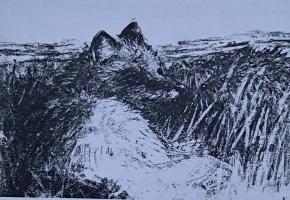Copy Link
Add to Bookmark
Report
NL-KR Digest Volume 14 No. 58

NL-KR Digest Mon Sep 25 21:13:12 PDT 1995 Volume 14 No. 58
Today's Topics:
CFP: AAAI95 Spr. Symp. on Comp. Implicature, Mar 96, Stanford
CFP: ECAI-96: Workshop Proposals, Eur. AI Conf., Aug 96, Budapest
Announcement: KBSE'95 Knowledge-Based S/W, Nov 95, Boston
* * *
Subcriptions: listserv-style administrative requests to
nl-kr-request@ai.sunnyside.com.
Submissions, policy, questions: nl-kr@ai.sunnyside.com
To speed up processing of your submission write to
listserv@ai.sunnyside.com with the message:
GET nl-kr style
Back issues:
FTP: ai.sunnyside.com:/pub/nl-kr/Vxx/Nyyy
/pub/nl-kr/Vxx/INDEX
Gopher: ai.sunnyside.com, Port 70, in directory /pub/nl-kr
Email: write to LISTSERV@AI.SUNNYSIDE.COM, omit subject, mail command:
GET nl-kr nl-kr_file_list
Web: http://ai.sunnyside.com/pub/nl-kr
Editors:
Al Whaley (al@ai.sunnyside.com) and
Chris Welty (weltyc@sigart.acm.org).
-----------------------------------------------------------------------
Date: Sun, 17 Sep 1995 16:40:34 -0400 (EDT)
From: Barbara DiEugenio <dieugeni+@andrew.cmu.edu>
To: nl-kr@snyside1.sunnyside.com
Subject: CFP: AAAI95 Spr. Symp. on Comp. Implicature, Mar 96, Stanford
Call for Papers and Participation (long version)
AAAI Spring Symposium on
COMPUTATIONAL IMPLICATURE: COMPUTATIONAL APPROACHES TO
INTERPRETING AND GENERATING CONVERSATIONAL IMPLICATURE
March 25-27, 1996 at Stanford University
Since the 1980's, several computational and formal approaches have
been developed to address pragmatic phenomena with the properties of
Gricean conversational implicatures. The purpose of this symposium
is to bring together researchers interested in developing computational
approaches to conversational implicature in non-figurative use of natural
language. The symposium will address the following related questions.
- Is the notion of conversational implicature still useful?
What role if any do Grice's maxims and Cooperative Principle still
play in computational and formal approaches? What types of
conversational implicature have been modeled successfully
so far? What do they have in common? (E.g., with the exception
of scalar implicatures, which are based upon Quantity, the majority
seem to be based on Relevance. But is Relevance a well-defined notion?)
What interesting classes of implicature have not yet been addressed?
What are the reasons for generating conversational implicatures (e.g.,
conciseness, politeness, avoiding misconceptions)?
- How does conversational implicature relate to other discourse
phenomena, e.g., coherence and discourse expectations?
What is the role of linguistic (e.g., prosodic or pragmatic)
constraints versus background knowledge?
Are there classes of discourse phenomena (e.g., ellipsis) which it would
be advantageous to analyze as types of conversational implicature
although they are not currently recognized as such in the computational
literature? What distinguishes conversational implicatures from other
defeasible inferences in discourse (e.g., default inferences in text
understanding)?
- How successful have recent developments in discourse processing such as
use of non-monotonic reasoning, abduction, and planning/plan inference
been in modeling conversational implicature? How well do these models
address related problems of intention, mutual belief, cancellation, and
reinforceability? How well do they address both generation and
interpretation? How should they be evaluated?
Most models have focused on single classes of conversational
implicature. What problems would arise in integrating them?
Are they scalable? What are the knowledge acquisition and
knowledge representation issues in using various formal
models as the basis for implementing systems that recognize and
generate implicatures?
- What problems in conversational implicature should be addressed
in the immediate future? E.g., how can corpora be used? What
corpora are available for studying implicature? How does the
problem of generating implicatures differ from the problem of
interpreting them?
Program Committee:
Barbara Di Eugenio (Co-chair), Carnegie Mellon University
Email: dieugeni@lcl.cmu.edu
Nancy Green (Co-chair), Carnegie Mellon University
Email: nancy.green@cs.cmu.edu
Julia Bell Hirschberg, AT&T Bell Laboratories
Marilyn Walker, Mitsubishi Electric Research Laboratories
R. Michael Young, University of Pittsburgh
Submission Information:
Persons interested in participating should submit (1) a 4-6 page position
paper addressing one or more of the above questions, or (2) a 1-2 page
statement of interest describing the author's relevant work and publications.
We welcome diverse points of view on the nature of and proper treatment of
conversational implicature, provided that they contribute to the development
of computational approaches to discourse interpretation and generation.
Papers should be formatted with 11-point font and 1-inch margins, and
should include the author's email address. Please send 5 hard copies to:
Dr. Nancy Green, Re: AAAI-SSS96, Computer Science Department, Carnegie Mellon
University, 5000 Forbes Avenue, Pittsburgh, PA 15213-3890, USA.
Timetable for participants:
October 31, 1995 Submission deadline.
November 30, 1995 Notification of acceptance.
January 19, 1996 Papers to appear in working notes are due.
February 23, 1996 Registration deadline.
For more information:
Available via the url: http://www.isp.pitt.edu/implicature
-----------------------------------------------------------------------
From: Elisabeth Andre <Elisabeth.Andre@dfki.uni-sb.de>
To: comp-ai-nat-lang@cs.utexas.edu, comp.nat-lang@ucbvax.berkeley.edu,
Subject: CFP: ECAI-96: Workshop Proposals, Eur. AI Conf., Aug 96, Budapest
Date: Wed, 20 Sep 1995 23:54:19 +0200
If you receive multiple copies of this announcement, please
accept my sincere apologies and thank you for your patience and
understanding.
------------------------------------
ECAI-96: CALL FOR WORKSHOP PROPOSALS
------------------------------------
12th European Conference on Artificial Intelligence
August 12-16, 1996
Budapest, Hungary
The ECAI-96 Program Committee invites proposals for the Workshop
Program for ECAI-96, which is to be held in Budapest, Hungary, August
12-16, 1996. The workshops for ECAI-96 will be held in the period 12th
- 13th August, immediately prior to the start of the main conference.
Gathering in an informal setting, workshop participants will have the
opportunity to meet and discuss selected technical topics in an
atmosphere which fosters the active exchange of ideas among
researchers and practitioners. Members from all segments of the AI
community are invited to submit proposals for review.
To encourage interaction and a broad exchange of ideas, the workshops
will be kept small, preferably under 30 participants and certainly
under 40. Attendance should be limited to active participants
only. Workshops are intended to be genuinely interactive events and
not mini-conferences. Thus, although the format of workshop
presentations will be determined by the organizers proposing the
workshop, ample time must be allotted for general
discussion. Workshops can vary in length, but most will last a full
day. Attendees at workshops MUST register for the main ECAI
conference.
-------------------------------------
Submission Details
-------------------------------------
Proposals for workshops should be between two and three pages in length,
and should contain:
- A brief but technical description of the workshop identifying specific
technical issues that will be its focus.
- A discussion of why the workshop is of interest at this time.
- The names, postal addresses, phone numbers and email addresses
of the Organizing Committee, which should consist of three or four people
knowledgeable in the field but not all at the same institution.
- The name of one member of the Organizing Committee who is designated
the primary contact, this being someone with an email address.
- A list of previously-organized related workshops organized by any of the
Organizing Committee. This is to help the Workshop Chair put the
workshop in context (previous experience with similar workshops is not
required).
- If possible, a list of tentatively confirmed attendees.
- A proposed schedule for organizing the workshop and a preliminary
agenda.
- A description of how the organizers intend to encourage a workshop,
rather than a mini-conference, atmosphere.
Proposers are encouraged to send their draft proposal to potential
participants for comments before submission. Proposals should be
submitted by electronic mail, in plain ASCII text as soon as possible,
but no later than November 1, 1995. Organizers will be notified of the
committee's decision no later than December 1, 1995. A summary of
accepted workshops with contact addresses will be available on the
ECAI webserver after 15th December 1995.
Workshop organizers will be responsible for:
- Producing and distributing a Call for Participation in the workshop,
open to all members of the AI community. The Call for Participation should
make it clear that all workshop participants are expected to register
for the main ECAI conference and that the number of participants is limited.
It should also make clear the process by which the Organizing Committee
will select the participants.
- Reviewing requests to participate in the workshop and selecting the
participants.
- By December 1, 1996, preparing a review of the workshop for possible
publication and sending it to the workshop coordinator.
Workshop organizers will be sent a set of guidelines for the preparation of
any working notes. They must provide the local arrangement office with the
following materials by June 3, 1996:
- A provisional list of workshop participants.
- Any working notes to be duplicated for the workshop, up to a total of 120
pages per participant.
- A list of audio-visual requirements and any special room requirements.
Workshop organizers must provide the local arrangement office with a final
list of workshop participants by July 29, 1996.
ECAI will be responsible for:
- Providing logistical support and a meeting place for the workshop.
- In conjunction with the organizers, determining the workshop date
and time.
- Duplicating working notes as described above and distributing them
to the participants.
ECAI encourages the production of publications based on the workshops, but
the ECAI name cannot be used on such publications without prior permission
being given. ECAI reserves the right to cancel any workshop if deadlines
are missed.
To cover costs, it will be necessary to charge a fee of ECU 50 for
each participant of each workshop in addition to the normal ECAI-96
conference registration fee.
An up-to-date version of the Call for Workshop Proposals is available via
WWW at URL: http://www.dfki.uni-sb.de/ecai96/call-for-workshops.html.
Please submit your proposals and any inquiries to:
Dr. Elisabeth Andre
Workshop Coordinator
German Research Center for AI, DFKI GmbH
Stuhlsatzenhausweg 3
D-66123 Saarbruecken
Germany
Tel: +49 681-302 5267
Fax: +49 681-302 5341
Email: ecai-96-ws@dfki.uni-sb.de
-------------------------------------
Important Dates
-------------------------------------
Submission Deadline for Workshop Proposals 1 November 1995
Notification of acceptance of Workshop Proposals 1 December 1995
Submission of final copy of Workshop Notes 3 June 1996
Workshop dates 12-13 August 1996
-----------------------------------------------------------------------
From: dottie@jaguar.ee.pitt.edu
To: marques@inesc.pt, martin@csi.forth.gr,
Subject: Announcement: KBSE'95 Knowledge-Based S/W, Nov 95, Boston
Date: Thu, 21 Sep 95 11:26:28 -0400
CALL for Participation
KBSE'95
The Tenth Knowledge-Based Software Engineering Conference
November 12-15, 1995
The Boston Back Bay Hilton
Boston, Mass.
Sponsored by Rome Lab.
In cooperation with AAAI, ACM SIGART and SIGSOFT, and the IEEE Computer
Society.
Web site: http://sigart.acm.org/Conferences/kbse
_______________________________________________________________________
The Knowledge-Based Software Engineering Conference provides a forum
for researchers and practitioners to discuss application of automated
reasoning, knowledge representation and artificial intelligence techniques
to software engineering problems. This conference focuses on specific
knowledge-based techniques for constructing, representing, reasoning
with, and understanding software artifacts and processes. These techniques
may be fully automatic, may support, or cooperate with humans.
In addition to technical papers, KBSE-95 includes tutorials, panel
discussions, and project demonstrations. The location of this year's
conference is in Boston, Massachusetts, and the conference banquet will
be at the Boston Science Museum.
General Chair: Howard Reubenstein, GTE Labs
Program Chair: Dorothy Setliff, Univ. of Pittsburgh
_______________________________________________________________________
KBSE-95 Program
Sunday, November 12
Sunday is reserved for tutorials. The following tutorials are confirmed:
9:00-12:00 A Survey of Knowledge-Based Software Engineering
(Half Day) W. Lewis Johnson, USC/ISI.
9:00-4:30 SPECWARE: Formal Support for Software Composition
(Full Day) Yellamraju V. Srinivas and Richard Jullig, Kestrel Inst.
1:30-4:30 Human-Centered Software Design and Software Design Environments
(Half Day) David Redmiles, UC Irvine.
Monday, November 13
8:30 Opening Remarks
Dottie Setliff, Univ. of Pittsburgh
9:00 Invited Talk
Howard Schrobe, ARPA
10:00 Break
10:30 Paper Session: Synthesis I
Session Chair: Kevin Benner, Andersen CSTaR
META-AMPHION: Synthesis of Efficient Domain-Specific Program Synthesis Systems
Michael R. Lowry and Jeffrey Van Baalen
Knowledge-Based Program Synthesis for a Geometric Constraint Satisfaction System
Sanjay Bhansali and Tim Hoar
CACHET: An Incremetal Attribution-based Program Transformation System for Deriving
Incremental Programs
Yanhong A. Liu
12:00 Lunch
1:30 Paper Session: Formal Methods
Session Chair: Paul Clements, CMU SEI
Representing Object Models as Theories
Scott Deloach, Paul Bailor and Thomas Hartrum
Logical Frameworks as a Basis for Verification Tools: A Case Study
Ina Kraan and Peter Baumann
A Transformation System for Reformulation of Design Optimization Strategies
Thomas Ellman, John Keane and Mark Schwabacher
Searching for A Global Search Algorithm
Thomas Santen and Sabine Dick
3:30 Break
4:00 Special Session: Legal Issues in KBSE
Session Chair: Michael Lowry, NASA.
This session will consist of a brief presentation of legal issues relating
to software patents and copyright, and their relation to KBSE, followed by
audience questions and discussion.
7:00 Banquet at Boston Science Museum
Tuesday, November 14
8:30 Panel: Empirical Evaluation of Software Technology
Panel Chair: Bill Sasso, Andersen CSTaR
10:00 Break
10:30 Paper Session: Knowledge-Based Environments
Session Chair: Chris Welty, Vassar College
An Empirical Evaluation of KBSE Technology
William C. Sasso and Kevin M. Benner
An Interface between Different Software Development Environments
Greger Linden and A. Inkeri Verkamo
>From Object-Oriented to Knowledge-based Programming (NUT System Development
Experience)
E. Tyugu
12:00 Lunch
1:30 Paper Session: Process
Session Chair: Karen Huff, GTE Labs
Domain-Oriented Software Process Re-engineering with Software Synthesis Shell
SOFTEX/S
Akiyoshi Sato, Minoru Tomobe, Toru Yamanouchi, Masanobu Watanabe and Masashi
Hijikata
A Model for Decision Maintenance in the WinWin Collaboration Framework
Prasanta Bose
Application of a Decision Support Mechanism to the Business Rules Lifecycle
Daniela Rosca, Sol Greenspan, Chris Wild, Howard Reubenstein, Kurt Maly and
Mark Feblowitz
3:00 Break
3:30 Paper Session: Reuse/Reengineering
Session Chair: Doug White, Rome Lab
Portability by Automatic Translation
Yishai A. Feldman and Doron A. Friedman
Classification and Retrieval of Reusable Components Using Semantic Features
John Penix, Phillip Baraona and Perry Alexander
Classifying Software Components Using Design Characteristics
Chris Clifton and Wen-Syan Li
5:00 Reception and Demos
Wednesday, November 15
8:30 Panel: Formal Methods in KBSE
Panel Chair: Richard Waldinger, SRI
9:30 Paper Session: Program Understanding
Session Chair: Peter Selfridge, AT&T Bell Labs
Towards an Epistemology for Software Representations
Christopher A. Welty
Interactive Explanation of Software Systems
W. Lewis Johnson and Ali Erdem
10:30 Break
11:00 Paper Session: Synthesis II
Session Chair: Loren Terveen, AT&T Bell Labs
Automating Changes of Data Type in Functional Programs
Julian Richardson
Towards High-Level Deductive Program Synthesis based on Type Theory
Harald Ruess
Test Sequences as Plans: An Experiment in Using an AI planner to
Generate System Tests
Adele E. Howe, Anneliese von Mayrhauser and Richard T. Mraz
Specification and Animation of a Bank Transfer
Yves Ledru
1:00 Lunch
_______________________________________________________________________
KBSE-95 Tutorial Program
Tutorial 1: A Survey of Knowledge-Based Software Engineering
9:00 - 12:00 (Half Day)
W. Lewis Johnson
USC/Information Sciences Institute
Email: johnson@isi.edu
This tutorial is intended to give attendees an understanding of the key
concepts in knowledge-based software engineering. It will identify software
engineering tasks that are amenable to knowledge-based solutions, and
categorize the various types of knowledge-based systems that may be
developed. The current state of the art in KBSE research and development
will then be examined, in each area of software engineering. The key
technologies currently being used in these solutions will then be
examined in detail. The tutorial will also place Rome Laboratory's
Knowledge-Based Software Assistant program in the overall context of
knowledge-based software engineering.
Dr. Johnson is Project Leader and Research Assistant Professor at the
University of Southern California's Information Sciences Institute. He
has been active in KBSE research for a number of years. He was chair of
the KBSE'92 conference, and is a member of the KBSE steering committee.
He is currently co-editor-in-chief of the journal Automated
Software Engineering: The International Journal for Artificial Intelligence
and Automated Reasoning in Software Engineering. He conducts research in
applications of artificial intelligence to software engineering as well
as education and training.
- -------
Tutorial 2: Human-Centered Software Design and Software Design Environments
1:30 - 4:30 (Half Day)
David F. Redmiles
University of California, Irvine
Email: redmiles@ics.uci.edu
This tutorial examines software development from the perspective of human,
cognitive needs. In this regard, two themes are explored. First, usability
methods for developing interactive software are discussed. The goal of
these methods is to yield software systems that closely match the tasks
and sophistication of the intended end users. Example techniques include
protocol analysis, the cognitive walkthrough, and heuristic evaluation.
Second, an architecture for software design environments is discussed.
Some examples of design environments will be presented but the emphasis
will be on the knowledge-based techniques which best meet the cognitive
needs of software designers. Example techniques include feedback from
critics, explanation through examples, and support for evolutionary
design.
Dr. Redmiles is an assistant professor in software engineering at the
University of California, Irvine. He has contributed to previous KBSE
conferences through technical paper presentations and demonstrations.
His research interests combine human-computer interaction with software
engineering, including research into the cognitive needs of human
software designers. He is also a member of the Irvine Research Unit in
Software, a university-industry partnership for improving software quality.
- -----------
Tutorial 3: SPECWARE: Formal Support for Software Composition
9:00-4:30 (Full Day)
Yellamraju V. Srinivas and Richard Jullig
Kestrel Institute
Email: {srinivas,jullig}@kestrel.edu
This tutorial is an introduction to Specware, a system for software
construction that is under development at Kestrel Institute. Specware
supports the systematic construction of executable programs from axiomatic
specifications via stepwise refinement. Specware is the result of the
integration on a common conceptual basis of the capabilities of several
earlier systems developed at Kestrel Institute.
The most important new aspect of the framework developed is the ability
to represent explicitly the structure of specifications, refinements,
and program modules. We believe that the explicit representation and
manipulation of structure is crucial to scaling program construction
techniques to system development.
The basis of Specware is a category of axiomatic specifications and
specification morphisms. Specification structure is expressed via
specification diagrams, directed multi-graphs whose nodes are labeled
with specifications and arcs with specification morphisms.
Specification diagrams are useful both for composing specifications from
pieces and for inducing on a given specification a structure suitable for
the design task at hand.
In Specware, the design process proceeds by stepwise refinement of an
initial specification into executable code. The unit of refinement is
an interpretation, a theorem-preserving translation of the vocabulary
of a source specification into the terms of a target specification.
Each interpretation reduces the problem of finding a realization for
the source specification to finding a realization for the target
specification. The overall result of the design process is to refine
an initial specification into a program module.
It is desirable to structure the overall refinement. Progression
through multiple stages requires sequential composability of refinements.
Similarly, parallel composition lets us exploit the structure of
specifications by putting refinements together from refinements
between sub-specifications of the source and target specifications. It
is for this purpose that we introduce the notion of diagram refinements:
just as specification diagrams impose a component structure on
specifications, so do diagram refinements make explicit the component
structure of a specification refinement. Sequential and parallel
composition of refinements satisfy a distributive law which is a
generalization of similar compatibility laws in the literature.
_______________________________________________________________________
KBSE-10 Registration Form
Title:[ ]Mr.[ ]Ms.[ ]Dr.[ ]Other:__
Citizenship:[ ]United States [ ]Other:___
Name/Position:
Organization:
Address:
City: State: Zip:
Telephone: Email: Fax:
Please check one
[ ] KBSE-10 Registration Fee - $250 by Oct. 20th, $300 after.
The fee includes conference proceedings, break refreshments, lunches and
banquet
[ ] KBSE-10 Student Registration Fee - $125 by Oct. 20th, $150 after.
The fee includes conference proceedings, break refreshments, and lunches.
[ ] Tutorials - $125 by Oct. 20th, $150 after.
[ ] Tutorial 1 A Survey of Knowledge-Based Software
Engineering
[ ] Tutorial 2 Human-Centered Software Design and
Software Design Environments
[ ] Tutorial 3 SPECWARE: Formal Support for
Software Composition
[ ] One Day Registration - $125.
Method of payment:
[ ] Check Check # Total Enclosed $
[ ] Credit Card # Exp. Date
MasterCard Visa Name on Credit Card
Make checks payable to Kaman Sciences Corporation.
Return payment and this form to Data & Analysis Center for Software.
Mail Registration to:
Kaman Sciences Corporation
Data & Analysis Center for Software
Attn: Ms. Patti McCormick
P.O. Box 120
Utica, NY 13503-0120
(315) 734-3625
Email: patti@utica.kaman.com
End of NL-KR Digest
*******************



























